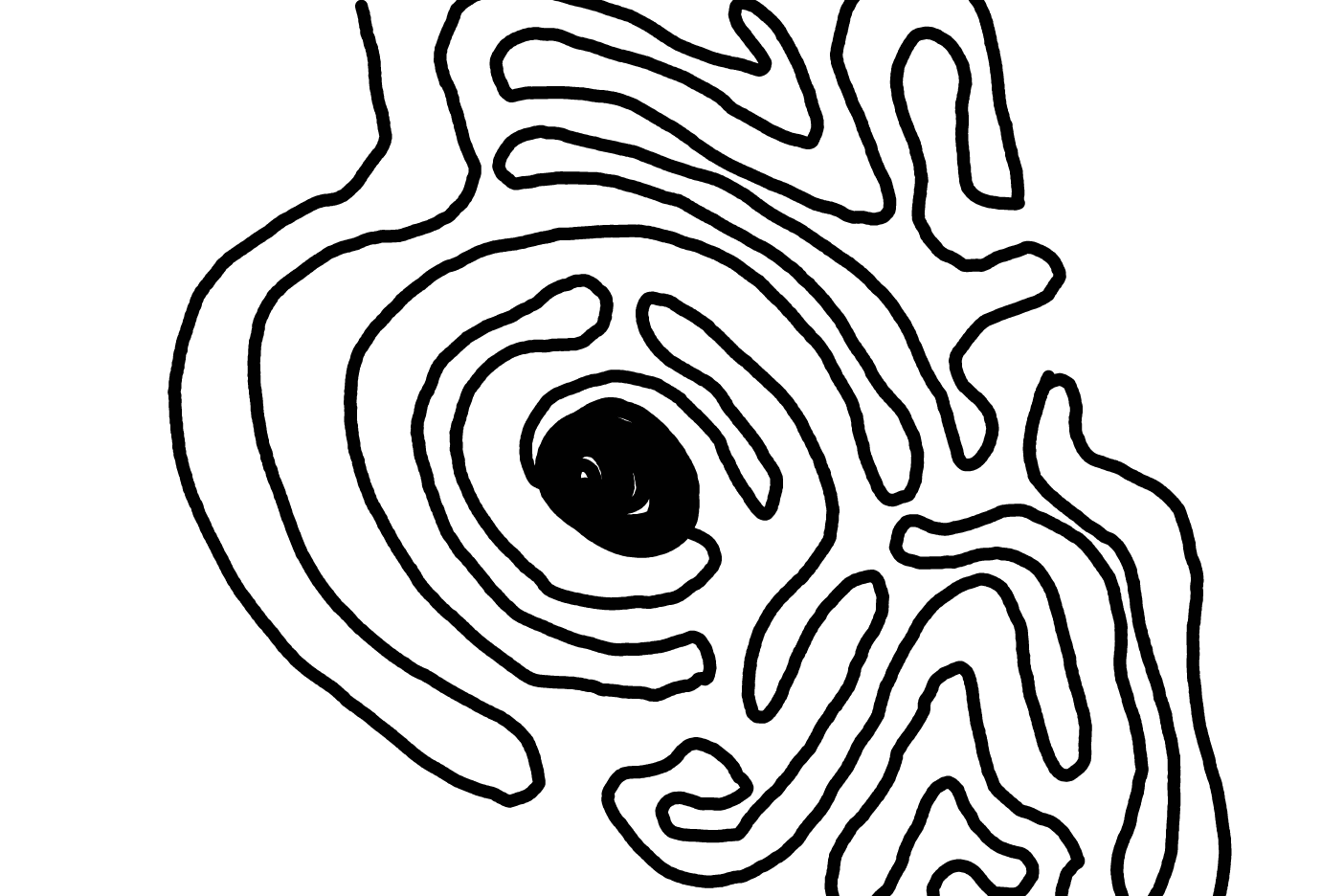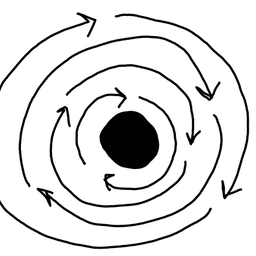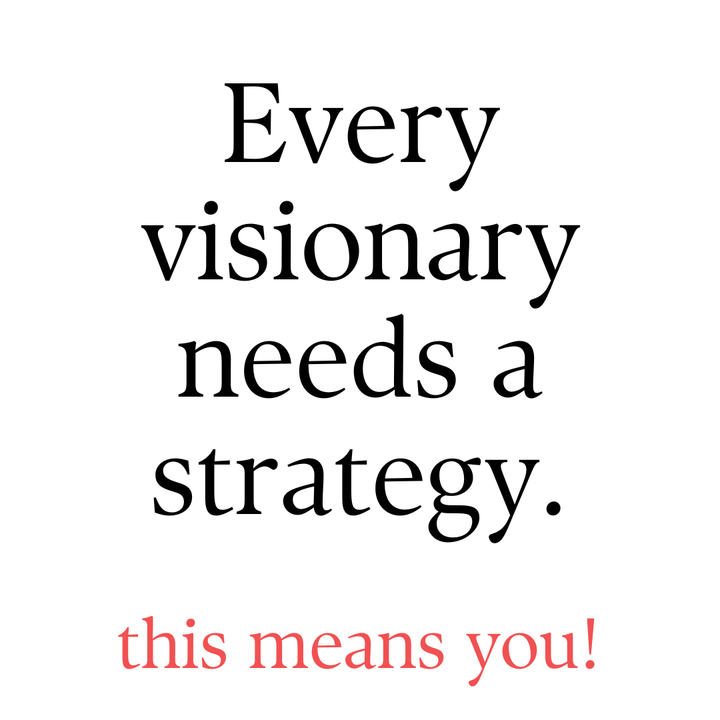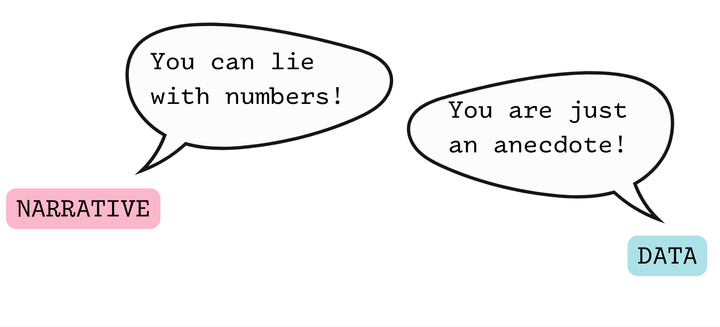Seduced by Sensemaking
They say smart people join cults because their minds crave cohesion. Basically, smart people are suckers for an explanation that makes sense.

They say smart people join cults because their minds crave cohesion. Basically, smart people are suckers for an explanation that makes sense.
That's me. Seduced by sensemaking.
I used to do live storytelling. The Moth, that sort of thing. They taught us that every story has a beginning, middle, and end. I was enthralled by sitting down with the spaghetti of my life and pulling out one strand. Maybe spaghetti is the wrong metaphor.
I was enthralled by sitting in the sandbox of my life, shovel and bucket in hand, and making something someone else might recognize as a castle.
Once, in a writing class, we were assigned to freewrite in the voice of our main character. The first prompt was, "It will all make sense when..." and I wrote furiously, enchanted by the idea of getting to know a character by learning what they believed would finally make things make sense.
My main character at the time, James, was a trans man trying to get pregnant. James thought it would all make sense when the baby arrived. That his life would finally come together, that his relationship would be fixed.
That's not what happened for James.
And I was thinking about all of this while I was pregnant with my second child, and things very much didn't make sense. Like I couldn't even find a single strand of spaghetti. No, wrong metaphor. Like I was trying to build a sand castle using a colander.
I almost started writing an essay then about how the temptation would be to think that everything would make sense when the baby arrived, how I even had a fictional character who absolutely thought that's what would happen, and how it was all a lie, the idea that a baby would make anything make sense. That I was done with the idea that anything could or should make sense at all.
And yet, when I pushed him out, a week early, and he didn't cry but just raised his little head on my chest to look around, with his big curious eyes and little chin just like mine, I was surprised to find that things did, in a way, make sense.
So maybe it's not so much that nothing can ever make sense, but rather that we can't count on things to make sense on our time frame.
Most people were surprised I was a Buddhist or surprised I was an epidemiologist or both, but really, they're both about causation and understanding the world.
My mistake, I suppose, was thinking that if I studied hard enough, either thing, something might come of it.
And yes, Zen Buddhism heads that off early, each morning we chant a sutra with the lines, "no path, no wisdom, and no gain." Everything is empty, we're reminded again and again.
And yet, when I first entered my Zen community, the students were seated in the meditation hall in order of their seniority--not in years, but in spiritual attainment. Even the printed lists of names with room assignments and meal crew designations were ordered by spiritual attainment.
It wasn't so hard to find your name. You got used to where to look. Sometimes, you'd notice that someone had unexpectedly jumped you on the list.
Later, they moved to a more conventional alphabetical listing, and shuffled the seating around. Suddenly, no one cared anymore about their position on the list.
When I went to graduate school for epidemiology--the study of causal inference, I kept explaining, not the study of diseases--we read a paper called "Prisoners of the Proximate." The article explained how we'd all become "prisoners" of looking at proximal causes, looking at recent things rather than an interplay of factors over an entire lifetime, or even before.
It occurs to me that we're all prisoners of the proximate.
But then, I would say that. Because it leaves the door open to looking further back for meaning. That maybe meaning can still exist.
Yesterday I paused while writing this and finished beading a small rosary I'd started many years ago. There hadn't seemed to be a point to that particular project then. It was too short. Now I wanted a short one.
It's nice when things come together, but we don't always know when that's going to be.
My friend Perdita teaches about the long story of the soul, that we are each so much more than one life, and that things make sense when we widen the lens across lifetimes, beyond what we can fathom. She says people are always moving back and forth between the realm of the living and the realm of the dead, like a needle moving through embroidery. She says the living side is the side with the knots and short stitches and tied off ends, but on the other side, they can see the picture.
Is there really a picture?
At the monastery, on retreats, we'd sit silently for ten hours a day or more. Most of us would then shuffle, limp and exhausted, to our dormitories to get a few hours of sleep before the wake-up bell rang before five the next day. But there were always a few people you'd still see seated in the zendo as you shuffled back from the bathroom, toothbrush in hand. Sometimes, someone would meditate all night, or try to.
I thought this was admirable until one day I overheard an offhand thought from an older woman: "Oh, these young people come, they sit like cowboys for a few years, and then you never see them again."
It's like these late-night meditators thought they were in one story, forging nobly ahead in a lifetime of Zen practice, when really they were in another, perhaps in that dreaded "just a phase."
The other day I floated a new project idea to my sibling: An email newsletter, but you can only have fifty subscribers. No more pursuing growth at all costs.
"So you'd have a waiting list and people would be waiting for you to have a friend break-up to get on the list?" they asked.
"Well, I hadn't thought it through that far. I guess if someone wasn't reading I'd just quietly remove them and they wouldn't notice." How many people actually want to read any particular newsletter anyway?
They thought the idea was ridiculous.
I said, "Hey, it's all about the marketing. With the right angle, it could be the next big thing."
It was easier to float this bizarre idea than to say what was beneath it: I'm sad and embarrassed that I spent so much time growing the readership on a Substack newsletter that I subsequently ghosted.
The hardest part of that, though, is the sensemaking. I thought I was in one story, forging nobly ahead, but really I was in another.
In school for epidemiology, we learn to take the messy spaghetti of people's lives and turn in into diagrams. They teach us to draw DAGs, directed acyclic graphs, which are diagrams of cause and effect where the arrows can only point in one direction--no cycles, everything must lead to something else.
My intro epidemiology textbook, which was mostly about population health and disease prevention, took an unexpectedly existential turn when it explained that some epidemiologists believe that, theoretically, everything could be perfectly modeled, given enough information, while other epidemiologists believe there's always an element of randomness, always something that cannot be fully known.
For me, I suppose, despite my diligence in drawing DAGs where the arrows point only one direction, I still like to think everything comes back around, given enough time.
Maybe this is true, or maybe I'm just kicking that old sensemaking can down the road, maybe leaving it for another lifetime.
Here's a thematically related but much earlier, more raw post. Interesting to see how these ideas have evolved for me.

💌 I have a newsletter!
I send emails once or twice a month sharing what's new on my site and some links I've found around.



